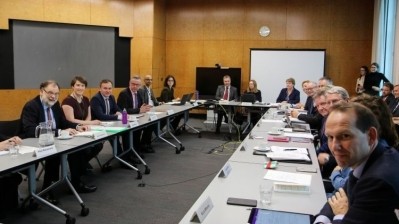Government’s Industrial Strategy ‘must tackle skills gap’

In a survey of 800 businesses, including food and drink firms, 61% said that recruiting engineering and technical staff with the right skills was likely to be a barrier to achieving their business objectives over the next three years.
A further 75% agreed that tackling the skills problem was fundamental to making the government’s Industrial Strategy viable.
To counter the growing skills gap in the engineering workforce, 81% of respondents said that more employers needed to provide work experience to youngsters.
However, only 30% of all employers acknowledged that it was their responsibility to invest in the necessary training to meet the skills challenges posed by increased digitisation and automation.
‘Meet future demand’
Joanna Cox, IET head of policy, said: “We must now bring businesses, academia and government together and strengthen their working relationships to ensure that the next generation of talent has the right practical and technical skills to meet future demand.
“We are urging more businesses to provide more quality work experience opportunities for young people and more apprenticeships, enabling employees to earn while they learn and develop their work-readiness.”
The recruitment shortage could be fuelled by a lack of diversity in the engineering sector, according to IET.
The IET’s research found that just 11% of the workforce was female, while only 15% of employers made an effort to attract and retain women in engineering and technical roles.
Of the companies surveyed, 87% said they did not have plans in place to encourage ethnic diversity within their businesses.
They also did not have initiatives in place to recruit lesbian, gay, bisexual and transgender workers.
‘Increasing productivity in the UK’
“Engineering has the potential to make a huge contribution to increasing productivity in the UK,” Cox added.
“Businesses also need to widen their talent pool, and see the benefits that come from a more balanced and diverse workforce.”
In response to the growing skills gap, the IET has launched the Work Experience for All campaign to bring together employers, universities, further education colleges and policy makers to collaborate on developing the quality of work experience and internships for those in education or training.
Meanwhile, last month, the government’s new Industrial Strategy – which includes a Food and Drink Sector Council – was welcomed by the industry and business leaders.
The creation of the sector council recognised the importance of the many sub-sectors that make up the UK’s £112bn farm-to-fork food chain, which employed almost 4M people, said the Food and Drink Federation.
2017 Skills and Demand in Industry report – at a glance
- 81% agreed more employers needed to provide work experience to help improve the supply of engineers and technicians
- 11% of the UK engineering and technical workforce is female
- 87% of employers did not have diversity initiatives in place
- 15% of employers made particular efforts to attract and retain women in engineering and technical roles
- 61% considered the recruitment of engineering and technical staff with the right skills as a barrier to achieving business objectives over the next three years
















